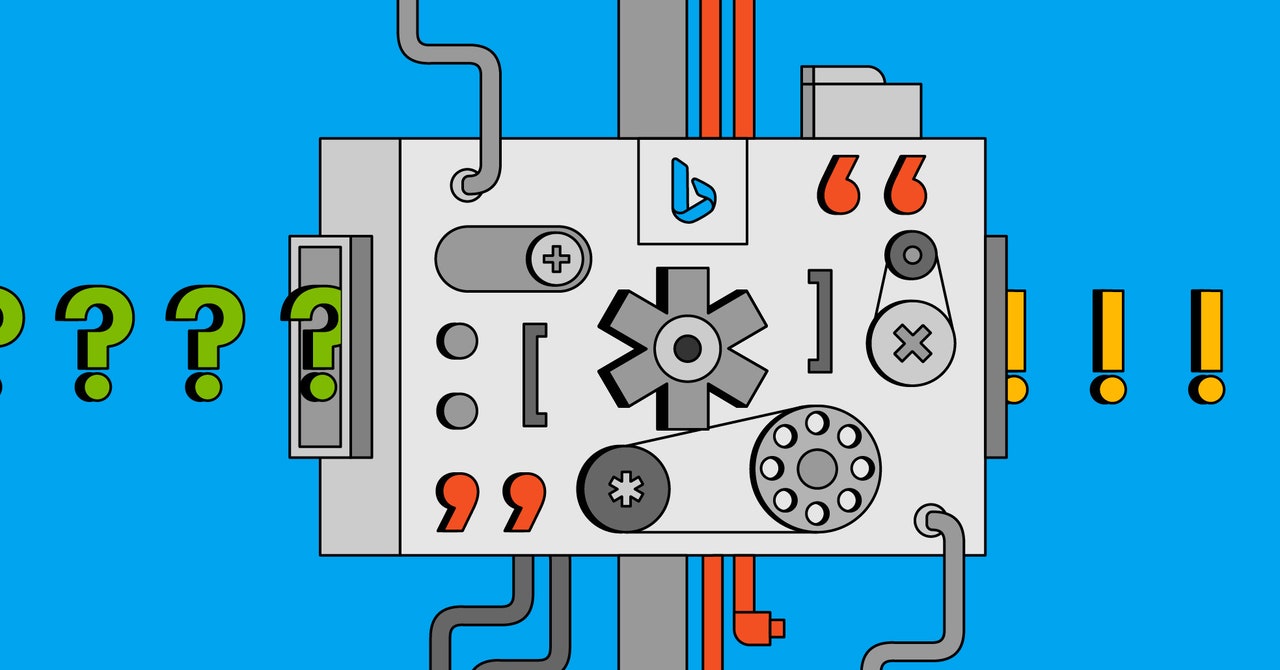Jordi Ribas does not taken a day off since last September. That month, the Microsoft Search and AI chief was given the keys to GPT-4, a then-secret version of OpenAI’s text generation technology that now powers ChatGPT. As Ribas had done with GPT-4’s predecessors, the Barcelona native wrote in Spanish and Catalan to test the AI’s knowledge of cities such as his hometown and nearby Manresa. When questioned about history, churches and museums, the answers were a hit. He then asked GPT-4 to solve an electronics problem about current flowing through a circuit. The bot nailed it. “Then we had that ‘aha’ moment,” says Ribas.
Ribas asked some of Microsoft’s brightest minds to investigate further. In October, they showed him a prototype of a search tool the company calls Prometheus, which combines the general knowledge and problem-solving capabilities of GPT-4 and similar language models with the Microsoft Bing search engine. Ribas again challenged the system in his native language, which presented complex problems to Prometheus, such as holiday planning. Once again he came away impressed. Ribas’ team hasn’t let go since. Prometheus became the basis for Bing’s new chatbot interface, which launched in February. Since then, millions of people in 169 countries have used it for more than 100 million calls.
It didn’t go perfectly. Some users spent hours battling with Bing chat exploring conversation paths that led to unhinged responses; Microsoft responded by setting usage limits. Bing Chat’s answers are occasionally misleading or outdated, and the service, like other chatbots, can be annoying slow to respond. Critics, including some of Microsoft’s own employees, warn of potential harms such as AI-crafted misinformation, and some have called for a pause in further development of systems like Bing Chat. “Real-world implementation of OpenAI models should be delayed until all of us, including OpenAI and Microsoft, can better study and mitigate the vulnerabilities,” said Jim Dempsey, an internet policy scientist at Stanford University who studies AI security risks.
Microsoft won’t comment on those pleas, but Ribas and others working on the revamped Bing have no plans to halt development, having already worked through weekends and fall, winter, and spring holidays so far. “Things are not slowing down. In fact, I would say things are probably moving faster,” says Yusuf Mehdi, who oversees marketing for Bing.
With just over 100 million daily Bing users, compared to more than 1 billion using Google Search, Microsoft has jumped headlong into a rare opportunity to reinvent what web search can be. That meant throwing out some of the 48-year-old company’s usual protocol. Corporate vice presidents like Ribas attended Bing Chat development meetings every day, including weekends, to make faster decisions. During product development, policy and legal teams were involved more than usual.
The project is in some ways a belated realization of the idea, dating back to Bing’s launch in 2009, that it should provide a “decision mechanism,” not just a list of links. At the time, Microsoft’s current CEO, Satya Nadella, was leading the online services division. The company has tried other chatbots over the years, including recent ones taste in Asiabut none of them the experiments was well received by testers or executives, in part because they used language models that were less sophisticated than GPT-4. “The technology just wasn’t ready to do the things we were trying to do,” says Mehdi.
Executives like Ribas consider Bing’s new chat mode a success — one that has brought hundreds of thousands of new users to Bing, paid off the company’s reported $13 billion invested in OpenAI, and demonstrated the giant’s agility at a time of recession fears have tightened Wall Street scrutiny of management. “We took the scale and expertise of a large company, but operated like a start-up,” said Sarah Bird, chief of ethics and security for AI technologies at Microsoft. Microsoft shares are up 12 percent since the launch of Bing Chat, far outpacing Google parent Alphabet, Amazon, Apple and the S&P 500 market index.

